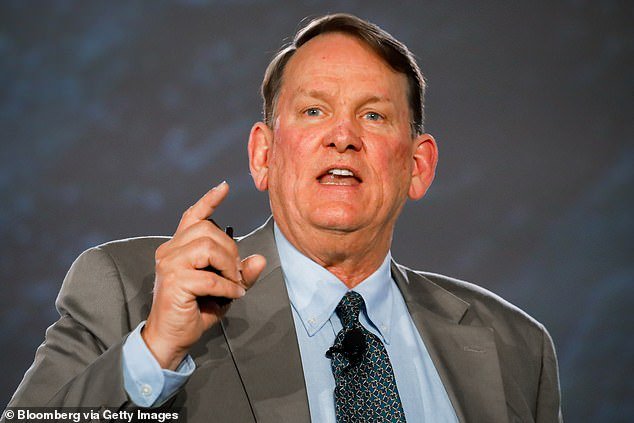Wall Street veterans warned that stocks could fall by as much as 12 percent after a sharp start to the year.
Although trading was closed yesterday for Independence Day, global stock prices hit new record highs on Wednesday.
The surge in the S&P 500 and Nasdaq was driven by a rise in tech stocks, propelling AI chipmaker Nvidia to become the world’s most valuable company.
Overall, this is good news for investors, including Americans who have a large chunk of their retirement savings invested in U.S. stock indexes.
But analysts are warning that stocks are unlikely to continue rising, or at least will need a “correction” before they can continue to rise.

Sam Stovall, chief investment strategist at CFRA Research, is warning of a stock market selloff.
“We’re increasingly concerned that we may have to endure another 5% or more decline this year,” Sam Stovall, chief investment strategist at CFRA Research, told Yahoo.
He described the potential downturn as a “resetting of the dial” or a “digestion” after a binge.
The S&P 500 surged more than 10% in the first quarter, which Stovall said was the index’s 11th best first-quarter return since World War II.
But he noted that 14 of the top 15 stocks with the highest returns went on to fall by at least 5%, with some even falling by more than 12%.
A 5% drop would send the S&P down to about 5,212 points from Tuesday’s close of 5,487, matching its level at the beginning of March.
A 12% drop would drop the index to its January level of 4,828.
Stovall noted that a “silver lining” is that after a strong first quarter, the S&P 500 tends to end the year up at least 20%, on average.
This means that any pullback will act as a breather before the market starts moving again.
Stovall, who served as S&P Global’s chief investment strategist for 27 years before joining CFRA in 2016, also questions what is causing the stock market decline.
These tend to be unpredictable events such as war, bank failures, market surges and overinflation (as many argue happened this year), or fears of a recession.
A stock market crash will also impact Americans’ retirement accounts. Most people have at least a portion of their 401(k) or individual retirement account invested in the Dow Jones, S&P 500 or Nasdaq.

JPMorgan Chase CEO Jamie Dimon said he could not rule out a “hard landing” in the US.
In recent weeks, leading bankers and even influential former CEOs have issued dire warnings about the U.S. economy.
In May, Jamie Dimon, chairman of JPMorgan Chase, the world’s largest bank, said: The worst outcome is U.S. Economy That would be “stagflation.”
this is inflation It continues to rise, but unemployment is high and growth is slowing.
Economists believe stagflation, last seen in the United States in the 1970s, would be worse than a recession, as it would cause stock prices to fall and hit 401(k) plans and other retirement savings.

